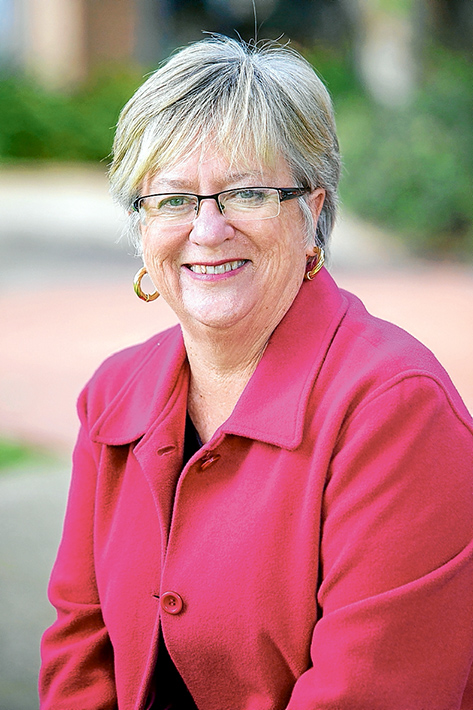
“IT takes a village to raise a child” is an old saying that still rings true for retiring Patterson River Secondary College principal Maree Vinocuroff.
“I am concerned with challenges facing students, such a lack of connectedness with the community,” she said as she prepared for her departure this week.
“If you take the school to be the village, it follows that structures and discipline are important features in the development of children.
“When I was young we referred to adults as Mr and Mrs and relatives as aunty or uncle, whereas now they can call us anything they like.”
Ms Vinocuroff has been at the college for 39 years as a classroom teacher, assistant principal and principal for the past 15 years, but is looking forward to having more free time to play golf, travel and be involved in Chelsea Rotary projects.
“I have seen the school move from strength to strength and become very well respected in the community,” she said yesterday.
“Over the years I have seen many students achieve success, some of whom are now staff members or parents of current students themselves. I have always been very proud of our students and their many and varied achievements.”
That said, she is concerned about a “lack of resilience” in young people – sometimes caused by parents opting to fight their children’s battles for them. “When I was young if I had a problem but wouldn’t tackle it my parents would tell me to ‘toughen up’ and get on with it,” she said.
“It all comes back to having strong family values, and the majority of families here are fantastic.”
She said the rise of social media was also “an issue”, with students obsessed with what each other are doing every minute of the day.
“I worry that it breeds a lack of creativity,” she said.
In her time, Patterson River Secondary College has seen some major improvements, such as the new basketball stadium, performing arts centre, music program and the Soiree held each year, while education as a profession had benefited from the introduction of VCE, VCAL and VET.
“The school went from 800 students when I arrived, to a peak of 1200 and now it’s back to 1060,” she said.
“We have done well and the students have achieved excellent results: I am certainly proud of them.
“Now I am seeing the children of former students here, and we have eight staff members who are former students.”
Ms Vinocuroff said invidious comparisons between Australian students and the high scholastic achievements of those in other countries were often misplaced. Travelling to education leader Finland to see for herself she discovered “a bit of a beat up” in analogies between us and them. Apples were not being compared with apples, according to Ms Vinocuroff.
“They are a country of few migrants, where parents demand success and where there is tremendous respect for teachers,” she said, citing Singapore as another example of a disciplined society which would baulk at the freedoms offered in schools here.
“Students over there would list their favourite times as reading, probably because of the weather, whereas here there is so much to do outside.”
She said Australian schools often “struggled with high migrant populations, and with looking after the overall wellbeing of their students”.
“That’s part of the job of teachers here, as many kids are from separated families, or have mental health issues. We act as a whole community in the support of our students.”
Ms Vinocuroff has a lot to look back on, having been in the education sector for 46 years.
“I have thoroughly enjoyed my time and will look back fondly,” she said.
“I am proud to be leaving the school in good condition with excellent results and continually improving facilities.”
Her successor as principal, yet to be chosen, will begin in Term 4.
First published in the Chelsea Mordialloc Mentone News – 22 June 2016
